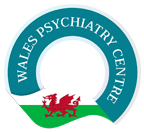
Attention Deficit Hyperactivity Disorder (ADHD)/ Attention Deficit Disorder (ADD) in children and adolescents
ADHD (Attention Deficit Hyperactivity Disorder)/ ADD (Attention Deficit Disorder) is a neurodevelopmental disorder that affects children and adolescents across the world and often continues into adulthood. ADHD/ADD is characterised by difficulties with sustaining attention, impulsive control, and hyperactivity.
The children/adolescents can be perceived as ‘naughty’, and often struggle with low self-esteem, poor relationships, and poor academic performances. With the appropriate help they are more likely to reach their full potential.
Features of ADHD/ADD in children and adolescents are divided and categorised in two main domains as per DSM-V
Inattention:
- Often fails to give close attention to details or makes careless mistakes in schoolwork, at work, or with other activities.
- Often has trouble holding attention on tasks or play activities.
- Often does not seem to listen when spoken to directly.
- Often does not follow through on instructions and fails to finish schoolwork, chores, or duties in the workplace (e.g., loses focus, side-tracked).
- Often has trouble organizing tasks and activities.
- Often avoids, dislikes, or is reluctant to do tasks that require mental effort over a long period of time (such as schoolwork or homework).
- Often loses things necessary for tasks and activities (e.g., school materials, pencils, books, tools, wallets, keys, paperwork, eyeglasses, mobile telephones).
- Often easily distracted.
- Often forgetful in daily activities.
Hyperactivity and Impulsivity:
- Often fidgets with or taps hands or feet, or squirms in seat.
- Often leaves seat in situations where remaining seated is expected.
- Often runs about or climbs in situations where it is not appropriate (adolescents or adults may be limited to feeling restless).
- Often unable to play or take part in leisure activities quietly.
- Is often “on the go” acting as if “driven by a motor”.
- Often talks excessively.
- Often blurts out an answer before a question has been completed.
- Often has trouble waiting his/her turn.
- Often interrupts or intrudes on others (e.g., butts into conversations or games).
Several features should be present before the age of 12 years and are present in two or more settings, (e.g., at home, school, or work; with friends or relatives; in other activities).
What can cause ADHD/ADD in children and adolescents
In children and adolescents there could be several reasons that may cause ADHD/ADD. Such as
- Genetic factors – Genetics is strongly linked with ADHD/ADD. Often there is a family history ADHD/ADD features.
- It is linked with reduced neurotransmitter activity (Dopamine and Noradrenaline) in certain parts of the brain.
- Environmental factors – premature birth, very low birth weight, drugs and alcohol consumption during pregnancy also have an increased risk of developing ADHD/ADD.
- Behaviours like ADHD/ADD can also be seen in children with learning disabilities, certain genetic conditions, and who have experienced emotional/behavioural difficulties or early life traumas such as adoption.
How is it diagnosed?
First step would be to talk to your child’s teachers. Discuss with school or your GP about getting referred to your local NHS services (usually referred to as the Neurodevelopmental Team). The diagnosis is based on the information from the child/adolescent in a psychiatric interview, using relevant questionnaires (when needed), getting collateral information from family/carers, school and carrying out a complete mental state examination.
How is it treated?
The most effective way of treating ADHD/ADD is multimodal. It may vary with age and severity. The treatment options include
- Medication
- Psychological interventions such as CBT
- Behavioural interventions
- School based interventions
- Management of risks associated with ADHD/ADD
- Management of comorbid conditions
- Regular review by the clinician
(9:30 AM - 1:30 PM)
(5:30 PM - 8:00 PM)
Request An Appointment
For appointments, please contact us via email at: info@walespsychiatrycentre.com
- Terms & Conditions | Legal Disclaimer | Privacy Policy | Complaints Policy

